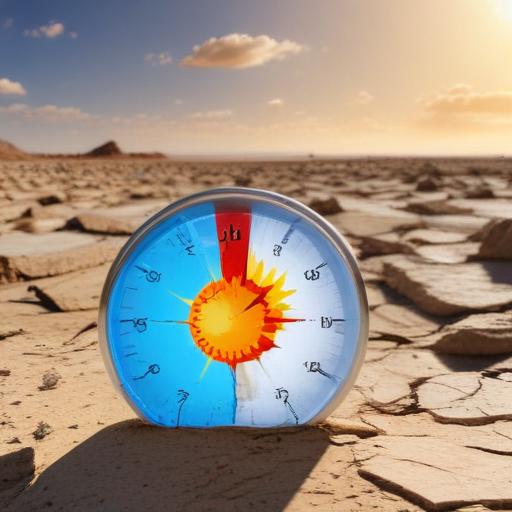The United States is bracing for potentially record-setting heatwaves this summer, with forecasts from the National Oceanic and Atmospheric Administration (NOAA) warning of significantly above-average temperatures across the country, including Alaska. As summer officially begins on June 1, 2025, NOAA’s Climate Prediction Center (CPC) has provided alarming projections suggesting that almost no part of the nation will escape the extreme heat.
Key regions expected to experience the harshest conditions include:
1. **Northeast and New England:** Cities like Boston, Hartford, and New York City may see a rise in days exceeding 90°F, with many residents lacking air conditioning, making heat preparedness critical.
2. **Southwest and Four Corners:** Known for sweltering summers, places like Phoenix, Las Vegas, and Albuquerque could have several days surpassing 115°F.
3. **Pacific Northwest:** Traditionally milder areas such as Seattle and Portland are now threatened by potential heat domes similar to devastating weather events from previous years.
4. **Florida and Gulf Coast:** High humidity alongside soaring temperatures could create oppressive heat indices above 110°F, resulting in dangerously high risks of heat-related illnesses.
As urban areas tend to retain heat due to the urban heat island effect, cities like Philadelphia and Chicago may surpass average temperature thresholds, resulting in severe health risks for vulnerable populations, including seniors, young children, and outdoor workers.
The predicted heatwaves also pose a severe risk of wildfires, especially in high-risk zones including the Southeastern coast, Central Texas, and California. NOAA notes that prolonged heat, combined with low precipitation in several regions, elevates the risk for wildfires to spread more extensively later in the summer.
In response to the anticipated challenges, communities are encouraged to implement various adaptation strategies. These may include expanding green spaces, installing reflective rooftops, and providing support for low-income households to access air conditioning.
The forecasted summer heat aligns with a concerning trend: the last decade has seen the hottest summers ever recorded in the U.S., illustrating a broader pattern of climate change that continues to exacerbate extreme weather events. As heat remains the leading weather-related cause of death, preparations at both individual and community levels are essential to mitigate risks.
Despite the daunting challenges posed by climate change and increasing temperatures, proactive measures can help protect communities and individuals from the impending heat crisis. By prioritizing preparedness and adaptation, people can work towards a safer and more resilient future.
